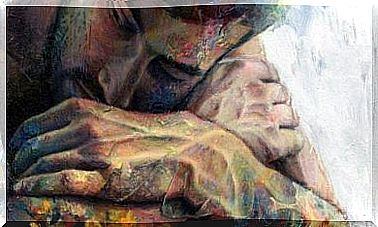How We Explain The Behavior Of Others

Although it is hard to believe, and even if you see it in others but not in yourself, it is a common practice to use double standards when trying to explain your own behavior and the behavior of others.
People tend to emphasize the influence of a situation on their own actions. However, when it comes to explaining the behavior of others, the situation changes.
They tend to blame behavior on their predisposition and personality traits. This way you can see how a situation influences your actions, especially when this situation is unexpected. However, it is more difficult to understand that the same thing happens to other people.
It sounds a little childish when we say it like that, but it’s something you’re probably not aware of. It is, in fact, a silent prejudice. In psychology this is called “the actor-observer effect.”
The most supported explanation for this phenomenon is that you have a different perspective when you act than when you watch. In other words, what you know and what you feel is different in every situation. That’s how you justify or describe behavior.
You know that you don’t always behave the same way and that your actions are sensitive to the circumstances. However, when it comes to the behavior of others, you have no information whether they always behave that way or not.
Moreover, when you do something yourself, your attention is focused on the situation. However, if it’s another person doing something, your attention is on that person. This is what we call a fundamental attribution error. That’s why your perspective changes.
Explaining your partner’s behavior
These statements are very curious when it comes to romantic relationships. The research results of social psychology will make you think twice before trying to explain the behavior of others.
It turns out that your tendency to explain your own behavior or the behavior of your partner is more dependent on whether you feel good in the relationship or not. It is not about the real cause of the behaviour. It seems that it is quite common for a couple to point at each other when something is not going well in the relationship.
Finchan and Bradbury’s research shows that if you’re comfortable in the relationship, you tend to justify your partner’s positive behavior with internal and controllable causes. In the same way, you associate the negative behavior with external and uncontrollable causes.
However, the most interesting thing that happens when your relationship doesn’t go well is that you tend to flip the attributes. So if things don’t work out between the two of you, you will assume that their good behavior is caused by external factors. Their bad behavior is then caused by internal factors.

The attribution of social behavior
What happens when you try to explain why some groups behave in a certain way is also very interesting. These groups can range from racial minorities and the poor to the unemployed. In principle, your explanation of these phenomena has more to do with your own values, ideas and political preferences than with reality.
The explanations you attribute to the behavior of others when you consider them as a group will depend mainly on how closely you feel with this group. The members of a group see their peers with more positive attributions than those who feel disconnected from them.
Explaining the behavior of others
A study by Furhan and Reicher, published in Frontiers in Psycholigy in 2017, found that conservatives and liberals explain negative social phenomena, such as poverty or wealth, in different ways.
For example, conservatives claim that rich people are rich because they save money and work hard. However, liberals see the rich as cruel and ruthless. When it comes to poor people, the latter explain their situation as a result of the inequality of resources and opportunity. The first group, however, explains poverty as a lack of ambition or laziness.

When it comes to protest actions and demonstrations, conservative people argue that people protest because of certain pathological traits. However, liberals say people are protesting because of social circumstances.
In short, the reality you experience as the truth has much more to do with what you project than the real truth. Keep this in mind when trying to explain the behavior of others.








